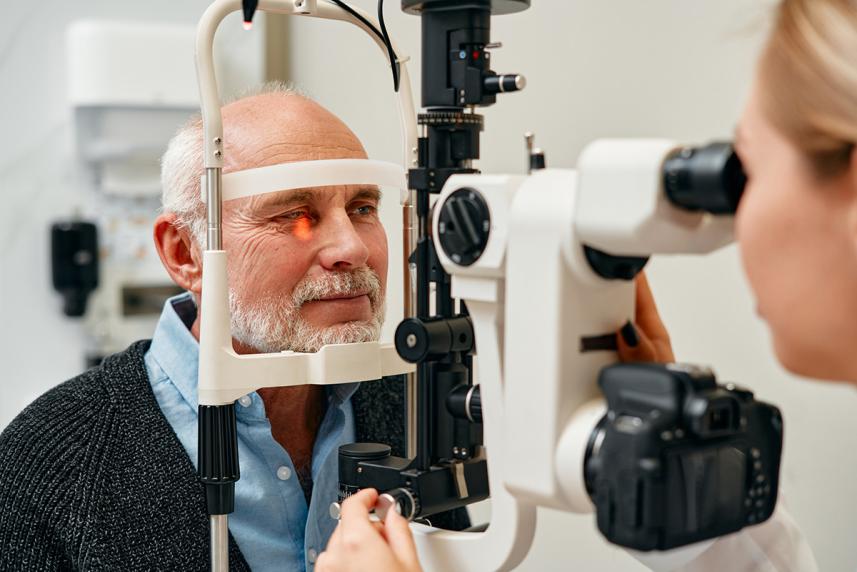Retinal eye exams: What you should know
Learn how this special type of eye exam could save your vision.

If you care about your sight, look here: You may need more than a standard vision test to keep your eyes healthy.
Retinal eye exams are especially important for older adults and those with diabetes. “The exam looks for changes in the retina, the light-sensing tissue in the back of the eye,” says Virginia Mason Medical Center ophthalmologist Connie Chen, MD.
Here are the key things you should know about this important test, plus what to expect if you get one.
What is a retinal eye exam?
A retinal eye exam is different from a standard vision test. It checks to see if you have good blood flow to your retina and looks for signs of tissue damage. If these signs are spotted early, you can prevent them from affecting your vision.
How do I know if I need one?
Retinal eye exams aren’t always part of an eye checkup. Ask your doctor if you need one. It may be important if:
- You have diabetes. Having high blood sugar can cause swelling or poor blood flow in the eyes, explains Dr. Chen.
- You’re 50 or older. Retinal eye exams can spot signs of age-related macular degeneration. This is a common condition that blurs the vision in the center of your eye, making it harder to read or drive.
- You often see floating spots or flashes of light. These may be signs that your retina is torn or has pulled away from the back of your eye.
What should I expect?
Retinal eye exams are longer than standard eye exams. But they’re easy and painless.
Here’s how they work:
- Your doctor will start by putting drops in your eyes. These drops widen your pupils so your doctor can see the inside of your eyes.
- Your doctor will examine your eyes with a bright light once your pupils are dilated. He may also scan your retinas to check whether your blood flow is healthy.
- Your vision may be blurry and sensitive to light for a few hours after your exam. Wearing sunglasses can make you more comfortable. It’s also a good idea to arrange for someone to bring you home. You may not be able to see clearly enough to drive yourself.
Retinal eye exams are simple, but they can help protect your vision. At your next eye exam, ask your eye doctor if this valuable test is right for you.


